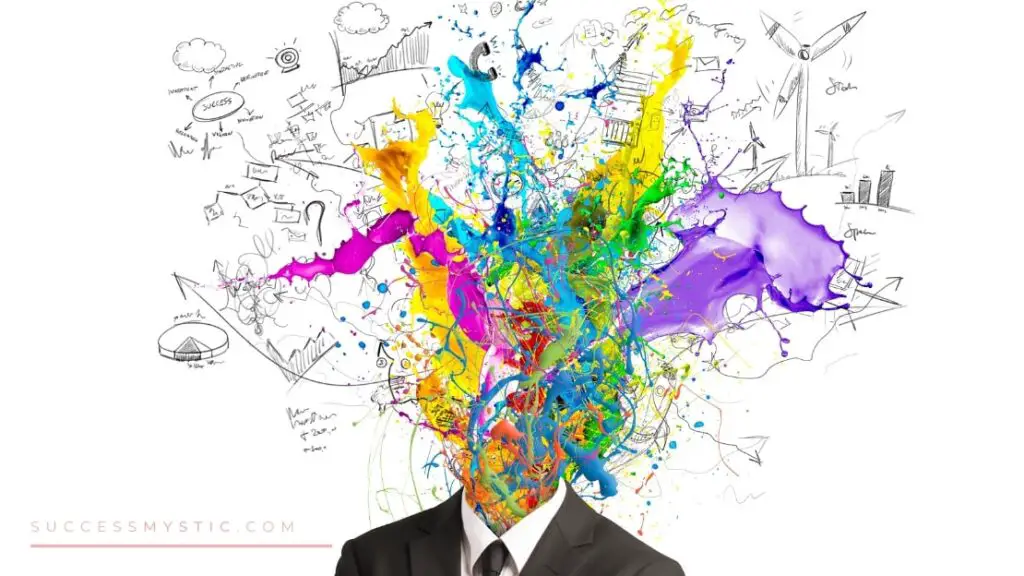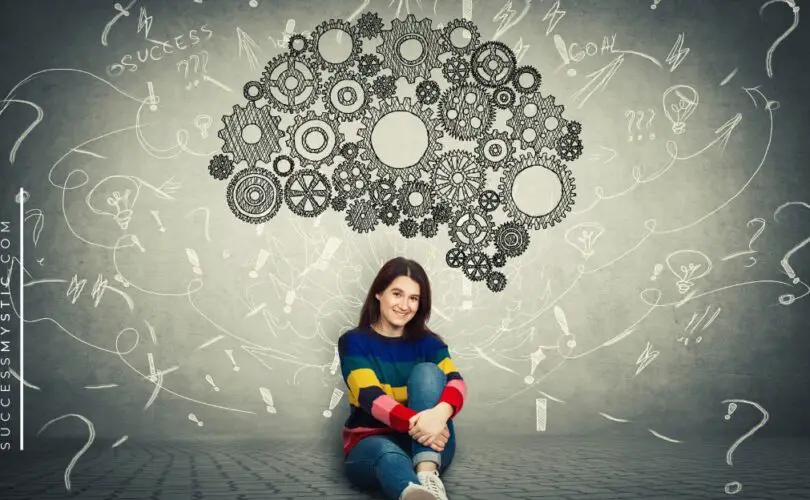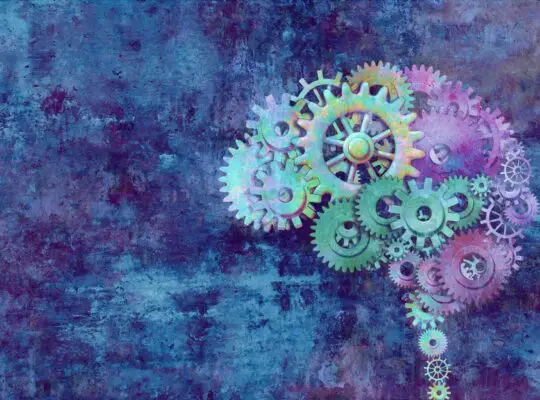Let’s begin reprogramming your subconscious mind for a better you and harness the subconscious mind power for a limit free life. Have you ever tried to change a habit and had some success, only to find yourself reverting to your old ways after a while? Of course, you have! We al have, right? Why is that your conscious mind can want something so badly, but it seems like it is not enough?
That is because there are powerful forces inside your brain at work for deeper and vaster than just your conscious thoughts.
Your subconscious mind is what controls your habits, and until you change it, you will never really change your life.
Whatever it is you want to improve about yourself, the first step in that transformation process should be to change your subconscious thoughts. Once these are successfully altered, you can use the power of your subconscious to help you develop new, more positive habits and become the better version of yourself that you strive to be.
Below, we will explore the basics of your subconscious mind, including how it influences your behavior and emotions.
Next, we offer an in-depth look at the importance of changing your subconscious thinking, and we end by giving you concrete strategies that will enable you to do just that.
Whatever your goal in life, changing your subconscious can help you achieve it.
What is the Subconscious Mind?

The thinking part of your brain has two essential components. The conscious mind is the part where you are actively thinking, making decisions, talking to yourself, and paying attention. This part of your brain processes about 4,000 bits of data per second, which sounds pretty impressive, right? The other part of your brain, though, known as the subconscious, is where a lot more thinking is taking place.
This part of your brain is responsible for processing close to 4 billion bits of information every second! Quite a difference, huh?
Your subconscious helps you filter out things that do not need your attention.
It also controls a lot of learned behaviors that you can do without too much focus, such as walking, driving, and cooking. Your subconscious takes care of many processes, habits, and routines so that you do not have to devote your much more limited conscious mind to these more automatic things.
Your subconscious also decides what is important, so you know when to pay attention. It filters out things that do not pertain to you. It helps you ignore the stimuli and information that is continually bombarding your senses. And, your subconscious is a vast repository of all your old memories, experiences, and emotions.
Your subconscious begins forming when you are a baby. Every experience in your life is recorded and noted in this part of your brain. When you are small, everything is new, so all your experiences are marked as “normal” and become part of your accepted reality. This includes positive and negative experiences. These become reference points by which you judge everything else in your life as acceptable or not.
By the time you start school, you already have a set of beliefs based on this foundation of experiences. You believe things about yourself as well as the world and other people.
You have heard messages or experienced things that have informed your sense of equality and fairness, about how to treat other people, and your own potential or possible limitations.
This subconscious keeps evolving as you age and have new experiences, but that early subconscious formation still plays a significant role throughout your life. You may become aware at some point in your adult life of your mind limiting your progress toward success or interfering in your ability to realize a dream. This is a sign there may be some old programming inside your subconscious that is getting in the way of attaining your goal.
The other primary function of the subconsciousness is to store every memory that you have ever had. While your conscious mind cannot possibly keep track of all these things and still perform its daily function, your subconscious can.
It takes all those memories and emotions and stores them away. Sometimes, you may suddenly remember something that happened to you a long time ago because something in your present reminded your subconscious of that and it recalled that long-ago experience from its deep memory banks.
What Role Does The Subconscious Play?

One of the main functions of your subconscious is to maintain equilibrium or keep your life on the status quo. This extends from your physical self to your emotional and mental well-being.
For example, your subconscious mind controls many of the automatic and reflex functions of your body.
It controls hormone regulation, which keeps your other systems working correctly. This part of your brain controls breathing as well as other systems and functions that your conscious mind does not need to think or worry about.
When it comes to your behavior, though, your subconscious also focuses on maintaining the status quo. By influencing your behavior and choices as well as your emotions, your subconscious is the part of your mind that likes routines and patterns, and it will do everything in its power to encourage (or coerce) you into doing the things you have always done.
Below, we explore in-depth the influence that your subconscious has on both your beliefs, behavior, and emotions through its ongoing quest to keep you on the same track.
You might like this: How to Influence Your Subconscious to Achieve Your Goals Faster
The Subconscious’ Effect on Beliefs
Your subconscious plays an influential role in your life because it is where your beliefs are formed and where they reside. Your belief system is the set of idea and principles that, once stored in your subconscious, become the driving force for your behavior and choices in life.
Because your subconscious is the storage place for all your memories, ideas, and experience, and because your subconscious likes repetition and routine, it uses all that data to formulate your beliefs. These morals, values, and perceptions become stored in your brain’s storage facility, where they then become the operating system for your mind’s supercomputer. Before your subconscious suggests an action or emotion, it checks in with this file and asks, “Does this match our data set?”
Your beliefs help to determine how you will act, what you will decide, and how you will perceive people and situations in various parts of your life. Your beliefs are what you believe to be true and most important to you. They also play a dominant role in determining your send of self and how you think about your abilities and gifts.
Beliefs are formed slowly over time, and they are informed by seeds of information, emotion, and other input. Those seeds get nurtured by repetition and emotion. The more something happens and the more emotions that are associated with it, the more likely it will be integrated into your belief system.
We tend to form beliefs when we receive information from trusted sources, too. If someone you love or respect shares an idea or opinion with you, you are much more likely to integrate this into your belief system, as well.
You might like this: 4 Most Effective Ways to Reprogram Your Subconscious Mind
The Subconscious’ Effect on Behavior
While your conscious mind is what controls the actual performance of your behaviors, it is your subconscious that directs those choices and actions from behind the scenes. Let’s look at reflex actions for a moment. Reflexes are behaviors that occur without you having to think about them or even despite you trying to control them.
They are not controlled by your conscious mind. Once a reflex has occurred, you may realize that your body responded without you having to do anything, but your conscious mind played no role in the execution.
Many of our everyday behaviors occur in much the same way. From what you eat to how you talk to other people, your choices are determined before they reach your conscious mind in the recesses of your subconscious. Your subconscious likes things to stay the same. It thrives on normality and routine. When given a choice, it will direct you to do the same things you have always done.
Your subconscious thrives on keeping you squarely in your comfort zone. It shies away from new and different, because these things may bring up new feelings or make you feel slightly uncomfortable, which can lead to negative outcomes. Your subconscious uses all your past experiences and emotions to inform these choices, and the more something has happened to you in the past, the more likely your subconscious is to want to keep doing that.
Remember that early foundation we talked about earlier?
Your subconscious remembers all those things that happened to you in the formative years of your life, and these remain some of the most potent norms that it uses to determine your beliefs and choices in the present.
The Subconscious’ Effect on Emotions

Your subconscious is impressionable, and it is primarily reactive. It does not use rational thought but merely relies on old patterns and known pathways to make determinations for you. While your conscious mind is provided about five percent of your cognitive activity each day, your subconscious is doing the rest.
And it is emotions that make the most significant impression on your subconscious mind. Your subconscious is highly influenced by your environment and the stimuli that come from the world in which you live, including the people in your life.
Your emotions are generated when your brain examines your current situation, uses its understanding of your own attitude and disposition, looks through your possible options, and explores your emotional comfort zone. In short, your emotions are born from a complex interaction of memories, beliefs, and habits, all of which are determined in the subconscious recesses of your mind.
Because your subconscious is also responsible for your autonomic nervous system and many of your involuntary functions, it makes sense that these also respond to your emotions. Your brain and your body react to intense happiness, sadness, fear, and worry. Your subconscious is part of the reason your body responds to anxiety, anger, and excitement the way it does. (1, 2, 3)
The Early Years and How They Influence Your Subconscious Today

We touched on this briefly earlier, but it is worth exploring a little further to understand just how powerful your formative years are as an influence on your subconscious mind. While some of your life is determined by your genetics, most of what you do and who you are comes from your participation in life and your mind’s influence over what is happening to you.
For example, identical genes will respond quite differently when the environment in which they live is changed. These differences include not only the behavior of the cell but the actual genetic building blocks of the cells over time. Your body and brain house 50 trillion cells, and how you treat them and the environment in which they grow and exist will significantly influence how the genetic code of each is expressed.
Consider two people sitting on a beach watching the waves crash against the rocks. Each of them has a different interpretation of their situation. One may feel peace and happiness, while the other feels isolated and alienated. These beliefs not only influence their minds and outlooks but also the very cells of their body.
Learning to intentionally control your perceptions of the world is the key to altering your subconscious mind and learning to reprogram old beliefs into new, more positive, or healthier ones. Focusing your consciousness on new desires and aspirations can, over time, transform the underlying subconscious thoughts and patterns, which can lead to a new you.
When you allow your subconscious to sit in the driver’s seat for most of your life, you are allowing it to rely on all those old habits, early memories, faulty perceptions, and other disempowering memories to be in control of your life. But, when you choose to be more present and conscious in your daily life, you can alter those patterns and become more aware of an in charge of your actions and choices.
A great deal of your subconscious programming was created during the first seven years of your life. During this time, your subconscious is the most receptive, taking in everything and recording it as fact. Your early reality, including how your parents and other influencers treated you as well as how they responded to life were all important in the formation of this part of your mind.
During this time, you learn how to behave when you have specific emotions, your ideas about money and relationships are formed, and your notions of safety and love are formed.
These underpinnings will remain for the rest of your life. While you will continue to evolve and grow, these will remain the most influential patterns in your subconscious functioning. You can recognize these patterns and early influences in your life by examining those things that you love, that motivate you, and they are the things you struggle with the most in your daily life.
When you see areas of tension or friction, it is because these were not part of your formative years, and your subconscious does not see them as part of your “programming.” (1, 2)
So, if our early years are so crucial to programming our subconscious thoughts, how do we overcome those first experiences and reprogram our brains?
There are, in fact, ways to override these earliest influences and teach your subconscious new ways of thinking.
That’s next.
Changing Your Subconscious Thoughts
You may be thinking, at this point, so if our subconscious is so powerful, how can I ever hope to reprogram it to make fundamental changes in my life?
Well, we’ve just outlined how your beliefs, behaviors, and emotions are controlled by this part of your mind, but we have also provided insight into how you can learn to control your subconscious and change the ideas that are interfering with you becoming the person you want to be.
Repetition, intense emotions, trusted sources, and intentional focus are what is necessary to reprogram your mind.
Below, we share a wide range of activities and strategies you can use to change your subconscious mind to alter your beliefs, actions, and emotions.
Depending on the goal you are trying to achieve, you may need to use more than one of these to realize your aim. Find ones that work best for you and keep with them! The more you do them, the more of a difference you are making in your subconscious mind.
1. Repetition
When you intentionally practice new thoughts and actions and connect these to positive emotions, your subconscious begins to integrate these into its idea of “normal” and “usual”.
Over time and with consistent practice, these new notions will become a part of the comfort zone your subconscious is always seeking.
Just like when you are trying to learn a new skill, you must pay attention and practice a lot before it starts to feel more natural and automatic.
You have to experience these new thoughts and think positively while you are focusing on your new, ideal behaviors.
2. Moments of Clarity
You may have had, at one time or another, a sincere moment of clarity or epiphany, when you think to yourself, “Yes! That is what I need to do!”
Sometimes these moments are connected to various high-impact events in our lives, like finding out you have a disease or surviving a critical incident. Even positive events, like having a baby or getting married can come with these ah-hah moments when you find an idea that is radically different than your old comfort zone and you suddenly realize that it makes you happy.
These moments of insight often invoke fear while also inducing happiness because they strike at the sore of your subconscious mind. While they represent promise, hope, and joy to your conscious mind, they feel like radical changes to your subconscious, which likes things just the way they are.
Paying attention to these moments, and then using them to help you create a new and more meaningful life for yourself can be powerful. When you hear this mighty and clear voice reach out from within you, stop everything, and listen. These moments are often when the most significant changes can begin in your life.
You might like: How To Train Your Subconscious Mind
3. Changing Your Environment
Your subconscious is influenced by everything around you, from the sounds it hears to the sights it sees. Creating an environment that is conducive to the new you, one that encourages positive thoughts and helps you develop your new habits, will be necessary.
Your subconscious is always absorbing messages and information, so eliminate negative influences whenever possible. Replace these with images, sounds, and stimulus that evokes the right messages, emotions, and attitudes that can help you reprogram your brain.
Some suggestions include:
- Seek out positive influences in your life. Watch videos of people that inspire you, read quotes from inspirational people, and post images that motivate you.
- Stay away form negative influence such as toxic people or negative news. Get off social media as much as possible to avoid the negative impacts of other people’s drama.
- Fill you home with things that make you happy and energized. Create a workspace that is conducive to your goals, too.
4. Hypnosis/Self-hypnosis
During hypnosis, your brain enters a theta state of receptivity, which is similar to how you are during your formative years of life. Being hypnotized can help you become open to more positive messages or perceptions.
You can work with a licensed hypnotherapist or try self-hypnosis using pre-recorded audio files. Using these types of recordings at bedtime, when your brain is naturally entering a theta brain state, can open your mind to new beliefs. Check out these self-hypnosis tracks, click here.
5. Visualization
Your subconscious thinks and organizes itself using images. And, it cannot discern between things you are really seeing and stuff you are vividly imagining. If you want to “trick” your subconscious into thinking you are seeing something, all you have to do is look at an image of the thing you most want or imagine it with your conscious mind.
Visualization is a wonderful way to reprogram your subconscious into expecting and looking for something that you want. Spend 15 minutes every day visualizing the positive images that represent the better you that you are trying to become.
You can visualize your life once you reach a specific goal. You can imagine your appearance after you have reached a health or fitness goal. You can visualize the home, job, or partner you would most like to realize someday in the future. Visualize anything that you want to draw into your life and think about it vividly and positively as often as you can.
Connect these images to strong and optimistic emotions for them to be effective.
Some people find more success by looking at images, which is where the idea of the vision board originated. Find pictures that represent your “ideal” or goal and spend at least 15 minutes looking at and thinking about these every day.
Check out this Destiny Tuning Method, which accelerates your manifestation process rapidly and magically attracts anything you want in your life.
6. Daily Affirmations
Another way to use the power of repetition and positive emotion to your advantage is to use daily affirmations. Affirmations are a way to repeat positive messages to yourself that will help your subconscious to internalize the messages you most want it to hear. Affirmations should be statements that are positive and worded as if you have already met your goal.
For example, instead of saying, “I want a job where I make a difference,” you should instead say, “I make a difference every day in the work that I do.” This places your words in the present, and since your subconscious does not deal with the future, this helps your message to sink in.
Refrain from negative words, since your subconscious cannot process these. Even saying, “I am not fat” will be translated by this part of your mind as “I am fat.” Instead, use only positive words, such as “I am healthy and strong.”
The other trick to affirmations is being sure to connect your words to the correct emotions. Saying words like, “I am blessed with many friends” while feeling lonely or isolated will not have the intended, positive effect. Strive to have positive, matching emotions with whatever words you are saying.
Repeat your affirmations many times per day. Keep repeating them for months, even years. The more you say them, the more likely they will manifest into reality. You can say them aloud or in your mind; the choice is yours. But say them often and with confidence.
Final Thoughts
Knowing whether your efforts at reprogramming your subconscious are working can be a challenging part of the process. You can’t, after all, look inside your brain to see what is changing. Learning to cultivate self-awareness and pay attention to what your mind and body are telling you will be crucial to gauging whether your subconscious is shifting. Learn to pay attention to self-sabotage other harming behaviors. Learn also to recognize moments of success and transformation.
Do you feel happier, stronger, or more confident?
Are you branching out from your comfort zone more often?
Are you more excited about reading your dreams than you are nervous about failing?
Do you feel more peaceful or content with your life?
The more positive you regularly think, the more evidence you have that the changes you are making are working and that you should keep going.
They key to lasting change to your subconscious mind is consistent and persistent reinforcement of the new ideas and beliefs you want to embrace. It takes time, and you need to allow yourself the space you need in life to accomplish these critical goals.
Do not expect that change will occur immediately, and learn to instead rely on small, incremental markers of change as indicators that you are headed in the right direction.
Choose one or two methods and stick with them. Be consistent with your strategies and persistent in your implementation of them, and you will see progress over time. Once you begin to see more positive changes, you will become even more motivated to keep going.
You are worth the effort and time it will take to reprogram your subconscious.
A better you is waiting on the other side of this journey, and you can become anything you set your mind to. Harnessing the power of your subconscious mind can unlock your hidden potential and help you achieve everything you desire in life.
What Next?
Program Your Brain for Limit Free Success
Before we have success at ANYTHING, we must first program OUR subconscious mind at the core for “winning habits.”
There is a simple way to hack your mind to unblock it from those harmful beliefs, and you can do this in just a few minutes a day.
The key to a limit-free life of success, happiness, and perpetual wealth is here:
➠ Hypnosis 5-track package: Limit free life
And for a limited time only you can get this 5-track limit-free life guided hypnosis package for only $47…. That’s a 60% discount!
Here’s the tracks you get with the program:
- Every Day My Life Gets Better
- Unlimited Confidence
- Limitless Positivity
- Limitless Stress Relief
- Bonus Track: Unlimited Creativity
Life can change in a flash…
…and it is not unreasonable to think that anyone can completely transform their life. No matter where life is at right now. Even if it seems hopeless.
After all it happens millions of times a day.
People from all over the world are experiencing abundance in Wealth, Health, and Love.
The difference between enjoying limitless success or not comes down to something tiny that can be fixed in less than 15 minutes a day.
Are you ready to embrace your limit-free life?







